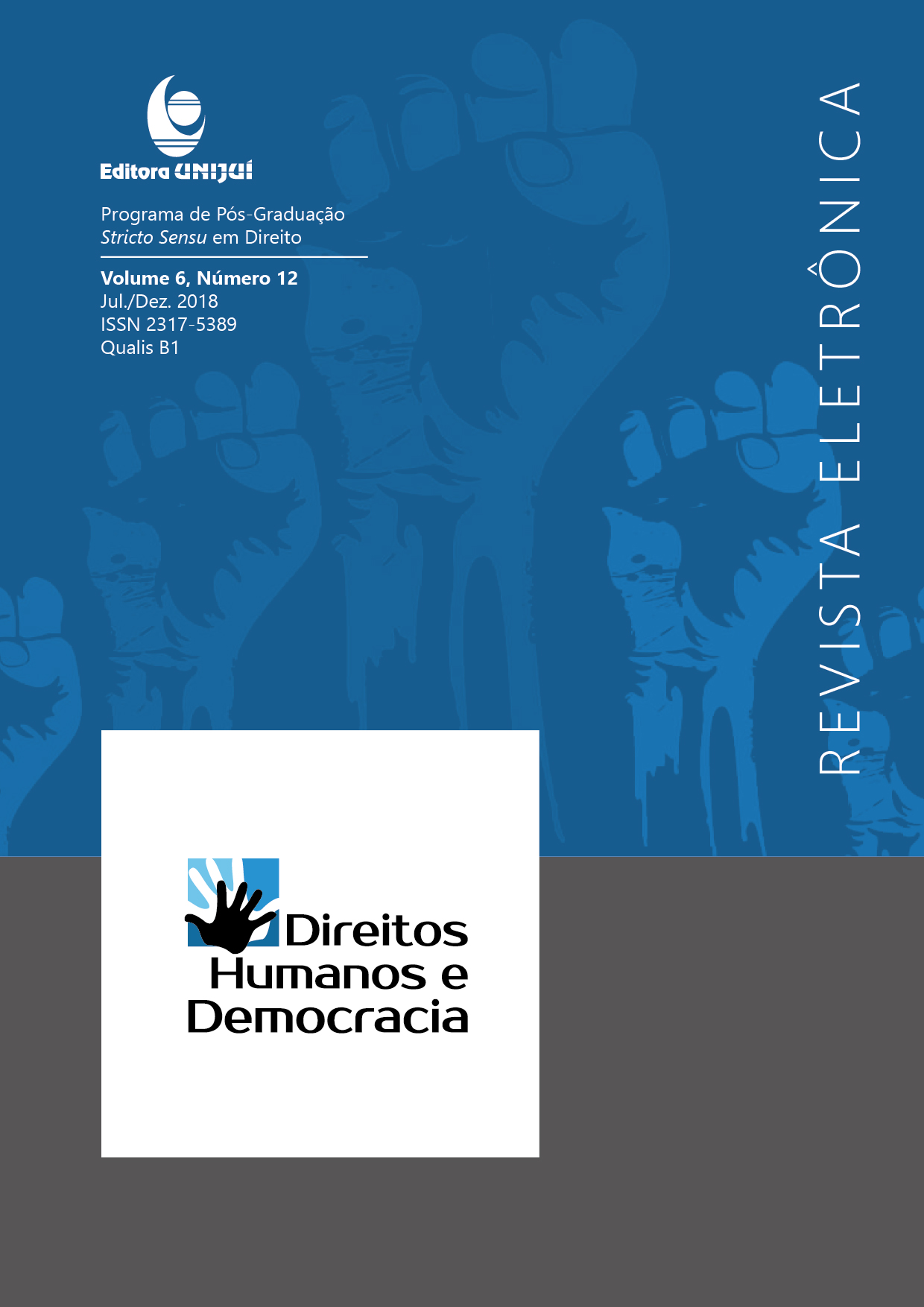BRASIL: A DIFÍCIL CAMINHADA DA DEMOCRATIZAÇÃO DO DIREITO CIVIL
DOI:
https://doi.org/10.21527/2317-5389.2018.12.196-211Abstract
A Constituição Federal de 1988 reinaugurou o Estado Democrático de Direito no Brasil. Com alicerce nos direitos fundamentais, a “Constituição Cidadã” formatou um modelo de Estado Social cujos objetivos consistem na construção de uma sociedade livre, justa e solidária, na erradicação da pobreza e da marginalização e na promoção do bem de todos, sem preconceitos de origem, raça, sexo, cor, idade e quaisquer outras formas de discriminação. Deste contexto emerge o ideário constitucional de democracia familiar, especificamente no presente artigo, voltado ao reconhecimento da união civil entre pessoas do mesmo sexo como família. A democratização do direito civil em matéria de direito de família, para além da interpretação das normas legais vigentes conforme a Constituição está a exigir a compreensão daquilo que constitui cada indivíduo (ou grupo) destinatário dos princípios da afetividade e da solidariedade. Em histórico julgamento de 2011, o Supremo Tribunal Federal, embora tenha equiparado em direitos e deveres a união civil homoafetiva e a união civil heteroafetiva, não logrou avançar no impreterível debate sobre as questões de gênero.
Downloads
Published
How to Cite
Issue
Section
License
By publishing in the Revista Direitos Humanos e Democracia, authors agree to the following terms:
Articles are licensed under the Creative Commons Atribuição 4.0 Internacional (CC BY 4.0), which allows:
Share — copy and redistribute the material in any medium or format;
Adapt — remix, transform, and build upon the material for any purpose, including commercial use.
These permissions are irrevocable, provided the following terms are respected:
Attribution — authors must be properly credited, with a link to the license and indication of any modifications made;
No additional restrictions — no legal or technological measures may be applied that restrict the use permitted by the license.
Notices:
The license does not apply to elements in the public domain or covered by legal exceptions.
The license does not grant all rights required for specific uses (e.g., image rights, privacy, or moral rights).
The journal is not responsible for opinions expressed in the articles, which remain the sole responsibility of the authors. The Editor, with the support of the Editorial Committee, reserves the right to suggest or request modifications when necessary.
Only original scientific articles presenting research results of interest, not previously published or simultaneously submitted to another journal with the same purpose, will be accepted.
References to trademarks or specific products are intended solely for identification purposes and do not imply any promotional endorsement by the authors or the journal.
License Agreement: Authors retain copyright over their articles and grant the Revista Direitos Humanos e Democracia the right of first publication.













